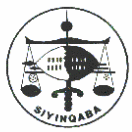3

SWAZILAND HIGH COURT
Barloworld Capital (Pty) Limited
trading as Barloworld Equipment Finance
formerly known as
BARLOWS CENTRAL FINANCE CORPORATION (PTY) LTD
trading as
BRL LEASING
Petitioner
vs
Joncon (Pty) Limited
Respondent
Case No. 1659/2001
Coram Sapire, CJ
For Petitioner Ms M. van der Walt
For Respondent Mr Kades instr by
Mr. B.S. Simelane
JUDGMENT
(09/10/2001)
This is the return day of a provisional order of winding up. On the return day the respondent opposed the granting of a final order.
The provisional liquidator has reported in the matter. I may have regard to what he has said. It appears that there are reasons for investigation into the conduct of the company’s business to ascertain how substantial assets have been dealt with. The provisional liquidator’s initial enquiries give rise to a suspicion that a substantial amount of income accruing to the Respondent has been diverted to another company to the prejudice of the creditors of the respondent. This may account for the Respondent’s palpable inability to pay its debts
That alone is not the sole reason for confirming the order.
The respondent addressed argument challenging the “locus standi” of the applicant on the basis that the petitioner was not a creditor having a claim of E100.00 or more.
The facts of the matter are, that the petitioner sold equipment to the respondent in terms of a series of instalment sale agreements. The aggregate purchase price runs into millions. These agreements, all similar if not identical in their terms, provided for payment of the purchase price in instalments. It is undeniable that the respondent has not paid any of these instalments for a period, now exceeding 2 years. The respondent has remained in the possession of the equipment using it for the purposes of its business.
At the time that the petition was lodged there was ample evidence to show that the respondent was indebted to the applicant in several millions Emalangeni in respect of arrear instalments alone.
The certificates, which were issued, as provided for in the agreements constitute at least prima facie evidence of the indebtedness. Such has in no way been contraverted.
The respondent sought to argue that because the agreement had expired or had been cancelled; this provision for proof of indebtedness by certificate did no longer apply and that it was no longer open to the petitioner to prove its claim by way of a certificate. This argument is quite untenable because neither cancellation nor expiry of time had the effect of rendering the agreement void to the extent that the provisions did not continue to operate in respect of those matters which were outstanding at the time of the end of the agreement. This argument is based on the loose use of the words “cancelled” and “expired”
The argument, which was also advanced, is that the claim was not liquidated. This submission completely ignored the certificates that were filed.
The ground on which the company was wound up was that it was unable to pay its debts and the only evidence supporting this allegation was the fact that the respondent had not paid this particular debt notwithstanding the elapse of a considerable period of time. In making a provisional order I found that these circumstances and all circumstances surrounding the case, namely that the purchases had been made several years ago and that the respondent had continued in possession without making payment for months, were sufficient an indication that it could not make its payments. I relied on Rosenbach & Co (Pty) Ltd V Singh's Bazaars (Pty) Ltd1, a judgment many times followed and referred to with approval, in coming to the conclusion that the respondent was commercially insolvent and unable to pay its debts. Nothing emerged on the return day to upset this conclusion.
Accordingly there is no reason not to confirm the provisional order and the company is placed in final winding up.
SAPIRE, CJ
1 1962 (4) SA 593 (N)